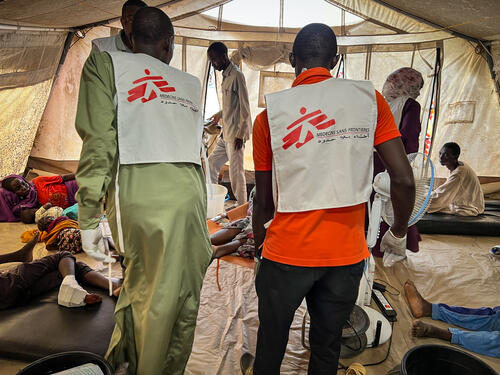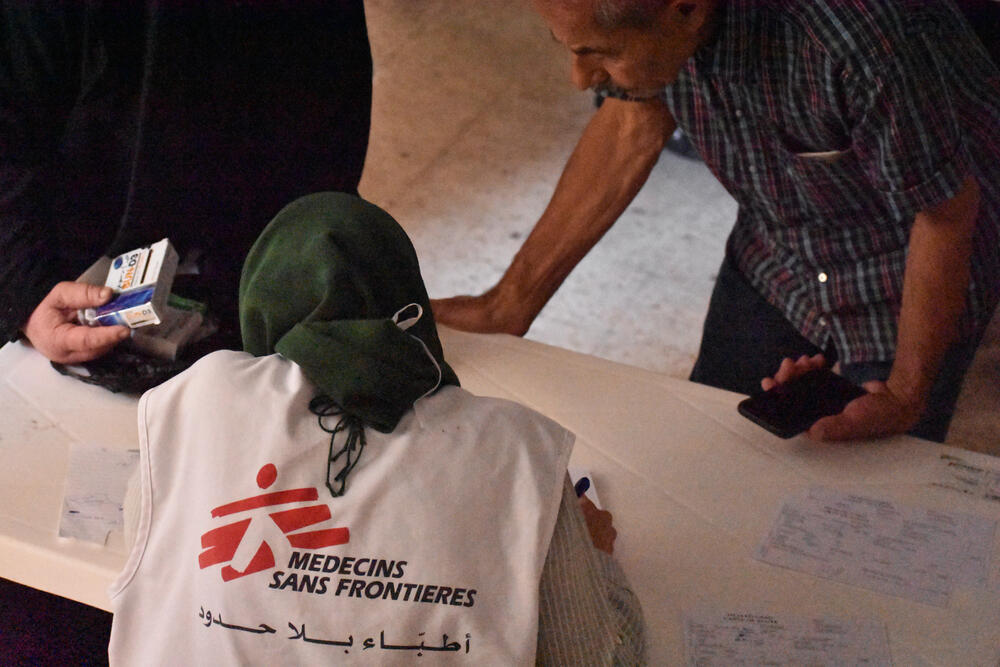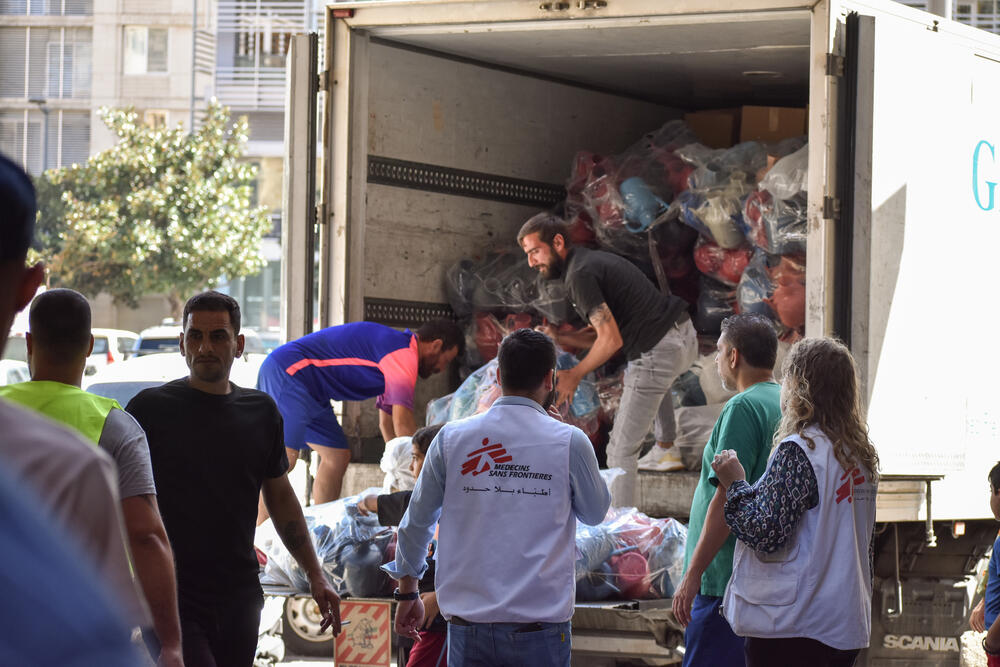Lebanon: Healthcare facilities forced to close by Israeli bombardment
As Israeli attacks intensify in Lebanon, healthcare facilities are being forced to close. This is leading to devastating consequences for people and their access to healthcare.
Médecins Sans Frontières / Doctors Without Borders (MSF) teams are working tirelessly to ensure the care in our existing facilities can continue, while also scaling up our activities to address the growing needs in Lebanon.
However, due to the intense Israeli airstrikes, we were forced to suspend some activities in highly affected areas. We continue to adapt our activities to provide people with much needed healthcare.
MSF urges all warring parties to spare civilians, medical facilities, and medical personnel in Lebanon to ensure that vital healthcare services can adequately address people’s urgent medical needs.
“Given the intensity of the violence, road damage, and the lack of guaranteed safety, we are currently unable to reach all affected areas in Lebanon despite the increasing medical and humanitarian needs,” says François Zamparini, emergency coordinator for MSF in Lebanon.
"We partially reopened our clinic in Hermel this week to ensure that patients receive their medications, providing them with a two-to-three-month stock of essential drugs"
Healthcare at risk
Last week, MSF was forced to completely close its clinic in the Palestinian camp of Burj el Barajneh in the southern suburbs of Beirut. We also had to temporarily stop our activities in Baalbek-Hermel, northeast Lebanon. These areas have both been heavily affected by the strikes.
“We partially reopened our clinic in Hermel this week to ensure that patients receive their medications, providing them with a two-to-three-month stock of essential drugs, depending on the severity of their condition and medical risks,” adds Zamparini.
Patients in these areas are already vulnerable, struggling to access the healthcare they desperately need. The closure of medical facilities has left people, especially those living with chronic diseases, without essential services.
MSF medical teams also remain unable to operate properly in southern Lebanon due to a lack of safety guarantees for our staff.

Our work saves lives
“One of the hospitals we planned to support and had donated medications and trauma kits to, in Nabatiyeh, only a few kilometres away from the active frontlines, was hit on 5 October,” explains Zamparini.
An MSF mobile medical team, which had been actively supporting general healthcare centres in Nabatiyeh and other areas closer to the Lebanese border since November 2023, has been forced to stop its activities.
The team was once able to reach areas near the border but is currently limited to operating only as far as Saida, which is about 31 miles north of the southern border, where needs are highest.
The impact of war
In the last two weeks, Israeli strikes have claimed the lives of at least fifty paramedics. This brings the total number of healthcare workers killed since October last year to over a hundred, as reported by the Lebanese Ministry of Public Health.
The heavy Israeli bombardments have also severely disrupted access to medical care across Lebanon. As of 1 October 2024, six hospitals and 40 general healthcare centres have closed their doors as the intensity of the fighting made it impossible to work without safety guarantees, according to the United Nations Office for the Coordination of Humanitarian Affairs (OCHA).
The armed conflict is worsening an ongoing humanitarian crisis. Lebanon’s healthcare system was already overburdened by the country’s economic crisis, which has caused the emigration of many medical staff and strained the capacity and resources of medical facilities.
Local health centres, already at capacity, are now facing increasing pressure as they try to meet the growing medical needs of displaced people.
The scale of displacement in Lebanon significantly surpasses the country’s ability to provide adequate shelter, with over a million people displaced according to the United Nations High Commissioner for Refugees (UNHCR). The majority of shelters are in dire condition.
To respond, MSF deployed 12 mobile medical teams across various regions of the country, including Beirut, Mount Lebanon, Saida, Tripoli, Bekaa, and Akkar. These teams are providing psychological first aid, general medical consultations, and mental health support, in addition to donating mattresses, hygiene kits, hot meals, and clean water. Nevertheless, people’s needs are far greater than what we are able to cover.
Read more: What MSF is doing in Lebanon
“We must ensure the continuation of care for those in need,” emphasises Zamparini. “We urge all parties to respect international humanitarian law. Civilians and civilian infrastructure, medical facilities and medical personnel must not be targeted. Their safety must be guaranteed.”
MSF and the crisis in Lebanon
In the early hours of Monday 23 September 2024, the Israeli army launched a large-scale military operation, targeting dozens of towns across Lebanon. Further bombardments in the following days led to people fleeing from these areas as residents sought safety elsewhere.
We are delivering healthcare and essential items to people who have been forced to flee their homes.

